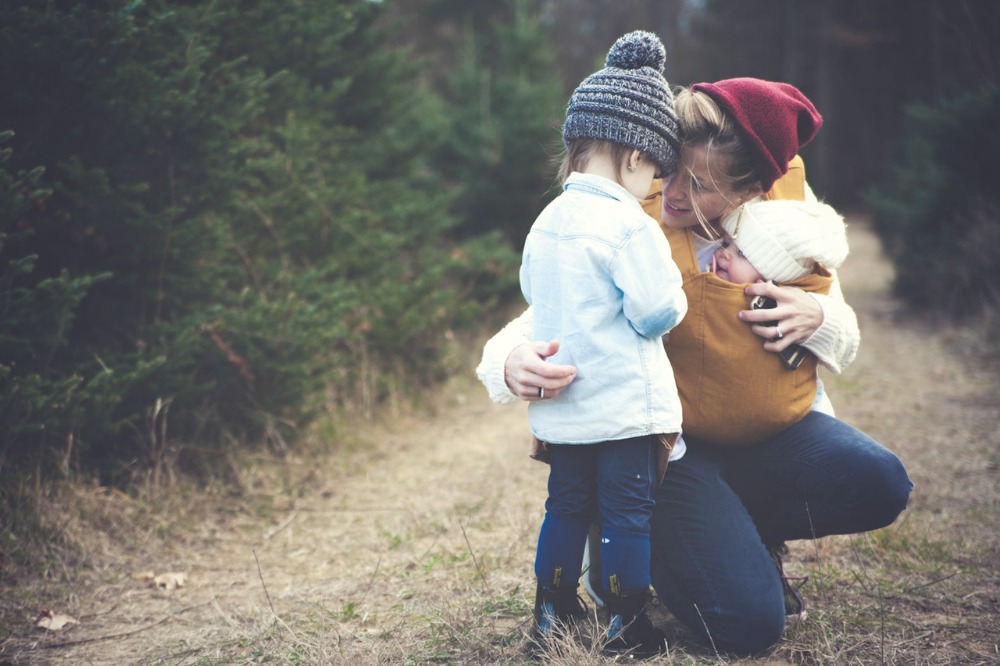As parents, we often spend a lot of time worrying about how we look to our children, and questioning if we are making a good impression. It’s so easy to beat ourselves up about our behavior and parenting decisions, but in the moment of seriously losing my cool, I found true understanding and empathy from my daughter. I learned, once again, that I am only human and so rather than focus on the perfect image, I better figure out how to make the most of my temper tantrums.
My kids were all accounted for and so it was just another normal, albeit hectic afternoon. I was sitting in the doctor’s office for my daughter’s routine check-up, my son was going to catch a ride home from soccer practice with a carpool, and my other son was home enjoying my parents’ company while they visited. Dinner was prepped, and I was all set to get home and turn around to to take my parents to the airport. Then all the best-laid plans fell apart. The doctor suggested we get my daughter’s wrist x-rayed immediately for a long-term issue she’d been dealing with. My son’s carpool fell through. My husband had to work late. I could have waited to do the x-ray until the next day, but I felt compelled to do it right now and take care of my girl. After all, how could I ignore a possibly broken wrist to accommodate a scheduling snafu? But that left my son without a ride. And, to compound the inconvenience,it left my parents having to take a taxi to the airport. These may not have been earth shattering problems, but at that moment, I could only think that I was failing everyone miserably and I completely freaked out.
Sometimes it’s hard to control our emotions, even when the situation is really fixable (we know this of our children but it’s hard to recognize it happens to us as well). But in losing my own cool, I triggered my daughter’s empathy. And, to boot, I found support in a surprising place. My daughter comforting me showed me that I had in fact taught her one of the most important lessons in empathy. And she showed me her true character. Realizing that while I can still be annoyed with myself, it’s easier to come to terms with who I am knowing I’ve raised someone who loves me and has found an (unexpected) way to support and comfort me
Despite having a challenging day, I found comfort and a sense of pride that my daughter stepped up to help me get through it. While you don’t generally want your children to see you lose your cool, it’s important that they know you’re human. The fact that my daughter displayed the empathy and maturity to help me get through my period of anxiety was a surprising and welcome show of her growth and also a show of how our parenting skills helped her to develop the insight, sensitivity and skills to make a significant difference to a fellow human being.
About the Author: Dr Amy Alamar
 Amy Alamar, EdD, has worked in the field of education as a teacher, teacher educator, researcher, parent educator, and education reformer for over fifteen years. In late 2014, Amy wrote Parenting for the Genius: Developing Confidence in Your Parenting through Reflective Practice. The book is a comprehensive guide to becoming the most thoughtful and confident parent possible, with anecdotes and details relating to the guidance and support of children from infant to young adult. In 2016, Amy was an invited guest of Michelle Obama at the White House for a conversation about kids’ health. Amy is also a contributing author to the Disney parenting website, Babble.com and a parent support specialist with Yellowbrick.me. Amy is married and the mother of three children whom she learns from and enjoys each and every day. She is a resident of Avon, CT, where she serves on the board of the Avon Education Foundation, dedicated to promoting and enhancing excellence in education. Find out more about Amy and her work by visiting her website, amyalamar.com.
Amy Alamar, EdD, has worked in the field of education as a teacher, teacher educator, researcher, parent educator, and education reformer for over fifteen years. In late 2014, Amy wrote Parenting for the Genius: Developing Confidence in Your Parenting through Reflective Practice. The book is a comprehensive guide to becoming the most thoughtful and confident parent possible, with anecdotes and details relating to the guidance and support of children from infant to young adult. In 2016, Amy was an invited guest of Michelle Obama at the White House for a conversation about kids’ health. Amy is also a contributing author to the Disney parenting website, Babble.com and a parent support specialist with Yellowbrick.me. Amy is married and the mother of three children whom she learns from and enjoys each and every day. She is a resident of Avon, CT, where she serves on the board of the Avon Education Foundation, dedicated to promoting and enhancing excellence in education. Find out more about Amy and her work by visiting her website, amyalamar.com.



We have to prioritize. When one family member is in the greatest need of help…we go to them. Flexibility is the key word,,,and though it’s hard to do, we can try not to focus on only one family member. Easier said than done though, especially if one child or adult has a disability of some kind.
It would have been so nice for your husband to have stepped up and helped you. He is your true support system but using the “I have to work” escape is another way of saying, “you are on your own, that is too much for me and I didn’t want all these kids anyway.” It is very frustrating to have gone down the same path and to hear other people doing it. Perfectly nice husband, but not there in a pinch. I am glad it worked out and that your daughter communicated her caring.
I think in any relationship there will be times we are able to be there for our partners and times we aren’t able to be. That’s the reality. It doesn’t mean we (or they) don’t want to be there. Certainly for some partners (men and women) it might be a question of ‘won’t’, but in this case it sounds like a question of ‘can’t’. In the same way we can’t always be there for our children when they want us to be, or the way we want to be, sometimes it can be that way for each other. It doesn’t necessarily dilute the commitment to each other, the children, or the marriage.
Thanks for this article and what a wonderful story. My teen sees a therapist who is in the same practice as my therapist. I got the feedback based on a conversation that they had, that my daughter sees me as having no struggles and it can make her feel bad. It was so fascinating to me, the advice to let her in a little more! Initially I thought, “but I do that!”, but then realized a part of the time that I feel and show exasperation, it results from my kids trying my patience and possibly making them feel bad. That is definitely not what the therapists meant (though that is okay sometimes too)!! Thanks for the reminder that it can have amazing results to let them see us struggle.
Terrific. I really love Hey Sigmund— the advice and information is better than any other site I’ve looked at.
My friend is dealing with her 22 year old who is taking out all her frustrations on her. Do you have any tips on how to talk to adult children who are behaving like toddlers?
Thanks Deidre. I’m so pleased the info here is helpful. In relation to your friend, the thing to remember is that we all need the same thing – to be heard. All behaviour is driven by a need. The need is always valid, but the behaviour that is used to get the need met can be very messy. Often people might not even be aware of the need that’s fuelling their behaviour – they just know that something doesn’t feel right.
Validating and acknowledging somebody who is in high emotion will soothe the nervous system. All emotion is there for a reason, and often one of the reasons is to enlist support. Once that support is communicated, the emotion can start to settle. Supporting the person doesn’t mean supporting the behaviour. They can be separate. Support the person by provide a gentle, strong, space – ‘You seem really angry.’ ‘You sound frustrated. I feel as though there’s something you need from me that you’re not getting. I want to understand what that is, but it’s difficult when there’s tension between us.’ ‘I can see you’re upset. I expect you have a really good reason for feeling the way you do, and I want to understand what that is.’ … or something like that.
There’s no point trying to reason with someone who is in high emotion. They won’t hear it and it might only make things worse. Validate the person by naming what you see in a supportive, non-judgemental way. By letting her know she is heard, it is more like likely that she will be able to find calm and find a space where she can speak calmly and in a way that is more likely to lead to a healthy fulfilment of her need.
Thanks so much– this was very helpful!
Breathe… Did you try to ask any of your mom friends for help? I’m sure at least one of your friends would have been happy to help… ?